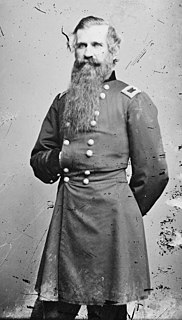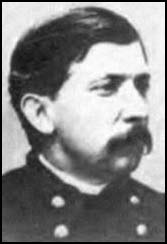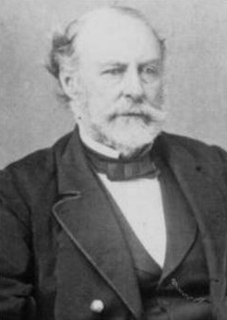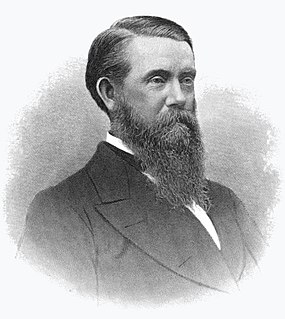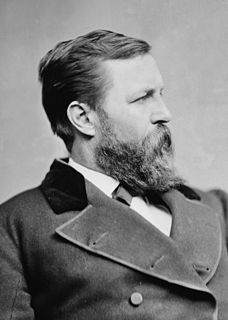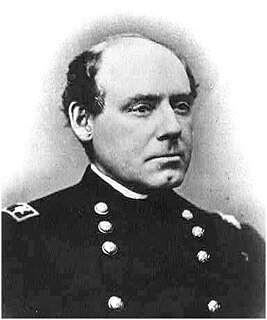Darius B. Warner (February 26, 1832 – February 28, 1917) [1] was an American Union brevet brigadier general during the period of the American Civil War. In 1863, as a lieutenant colonel, he led the 113th Ohio Infantry at the Battle of Chickamauga. [2] He received his appointment as brevet brigadier general dated to February 13, 1865 (or March 13, 1865), [3] nominated April 3, 1866, and confirmed April 26, 1866. [4]

During the American Civil War (1861–1865), the Union, also known as the North, referred to the United States of America and specifically to the national government of President Abraham Lincoln and the 20 free states, as well as 4 border and slave states that supported it. The Union was opposed by 11 southern slave states that formed the Confederate States of America, also known as "the Confederacy" or "the South".

In the United States Armed Forces, brigadier general is a one-star general officer with the pay grade of O-7 in the U.S. Army, U.S. Marine Corps, and U.S. Air Force. Brigadier general ranks above a colonel and below major general. The rank of brigadier general is equivalent to the rank of rear admiral in the other uniformed services. The NATO equivalent is OF-6.

The American Civil War was a war fought in the United States from 1861 to 1865, between the North and the South. The Civil War is the most studied and written about episode in U.S. history. Primarily as a result of the long-standing controversy over the enslavement of black people, war broke out in April 1861 when secessionist forces attacked Fort Sumter in South Carolina shortly after Abraham Lincoln had been inaugurated as the President of the United States. The loyalists of the Union in the North proclaimed support for the Constitution. They faced secessionists of the Confederate States in the South, who advocated for states' rights to uphold slavery.
He married Nancy Robinson in Lancaster, Pennsylvania, on June 7, 1856. His Warner ancestors were from Anne Arundel County, Maryland, and Dublin, Ireland. [5]

Lancaster is a city located in South Central Pennsylvania which serves as the seat of Pennsylvania's Lancaster County and one of the oldest inland towns in the United States. With a population of 59,322, it ranks eighth in population among Pennsylvania's cities. The Lancaster metropolitan area population is 507,766, making it the 101st largest metropolitan area in the U.S. and second largest in the South Central Pennsylvania area.

Anne Arundel County, also notated as AA or A.A. County, is a county located in the U.S. state of Maryland. As of the 2010 United States Census, its population was 537,656, a population increase of just under 10% since 2000. Its county seat is Annapolis, which is also the capital of the state. The county is named for Lady Anne Arundell (1615–1649), a member of the ancient family of Arundells in Cornwall, England, and the wife of Cecilius Calvert, 2nd Baron Baltimore (1605–1675), founder and first Lord Proprietor of the colony Province of Maryland.

